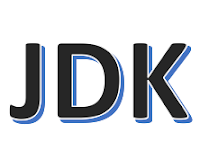 |
| BCA and MCA Training Institute with BCA Project and MCA Project |
Difference in the working of C++ and Java?
C++
|
JAVA
|
Support multiple inheritances.
|
Does not support multple inheritances.
|
Support pointer mechanism.
|
Does not support pointer mechanism.
|
Use only compiler.
|
Use compiler and interpreter both.
|
Support both Method Overloading and Operator Overloading.
|
Support Method Overloading but no operator overloading.
|
Based on C language.
|
Based on C and C++ language.
|
Execute code directly.
|
Execute code with the help of JVM (Java Virtual Machine).
|
Support GOTO statement.
|
Does not support GOTO statement.
|
Used CIN for input and COUT for output .
|
Used System.In for Input and System.Out.println for output.
|
YCMOU university Java notes and Training and you can contact us for Online and Offline Java training class. Java Training Institute in Mumbai and Tutor for Java in Kandivali, Malad, Borivali, Dahisar, Mira Road, Bhayandar, Vileparle, Warden Road, Nepean Sea Road, Kalyan, Thane, Ghatkopar, Kurla.
We also teach subjects of Mumbai University.














